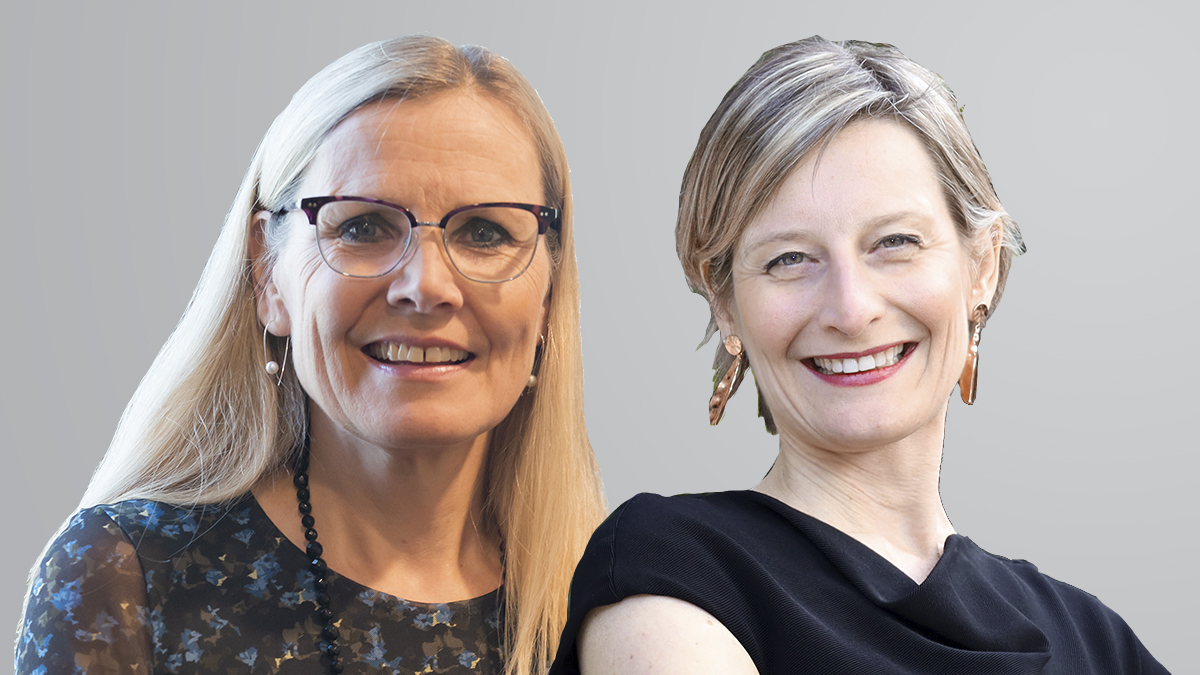Climate finance cannot flow into a policy vacuum: UNEP FI
New Nationally Determined Contributions must send a signal to investors, head of the UN Environment Programme Finance Initiative says
UNEP FI chief, Eric Usher, outlines how the new climate action plans that countries submit to the UN Framework Convention on Climate Change can unlock the finance and insurance needed
Nothing encourages climate finance like good climate policy, according to the head of the UN Environment Programme Finance Initiative (UNEP FI), Eric Usher.
In an interview with Insurance Day, Usher says investors will be watching closely the “next generation of commitments” countries release in the lead up to COP30.
The Paris Agreement, signed 10 years ago by 196 countries, embodied the idea of nations making their own commitments, in phases, to net zero. These Nationally Determined Contributions (NDCs) have this year entered the third phase. They are the latest climate action plans nations will put forward to reduce greenhouse gas emissions and adapt to climate change by 2035.
Usher quotes the executive secretary of the UN Framework Convention on Climate Change, Simon Stiell, when he says the alternative name for the NDCs, often termed national climate plans, should be “national climate investment plans”.
Usher says: “The question is, how can you go from making a policy commitment of what the country intends to do in terms of addressing the different aspects of the climate challenge to something that is more concrete? The finance community needs countries to move from ambition-setting to clear policy priorities embedded in legislation. Then the private sector will be able to play its value-added role of deploying the investment solutions that are needed.”
 COP29 in Baku was the ‘finance COP’, while this year’s meeting in Belém could be the ‘enabling conditions COP’
Zulfugar Karimov/Alamy Stock Photo
COP29 in Baku was the ‘finance COP’, while this year’s meeting in Belém could be the ‘enabling conditions COP’
Zulfugar Karimov/Alamy Stock Photo
The hope is to make progress from last year’s “finance COP” in Baku, to the “enabling conditions COP” in Belém, Usher says.
“The private sector, including the finance community, has made a lot of progress in recent years on setting net-zero targets, but there is the feeling governments haven’t kept up,” he says.
“Ultimately, finance won’t fill a policy void, so there is an expectation governments must step up their ambition and make the hard decisions that involve establishing policy priorities for decarbonising specific industries. And they need to plan how exactly that’s going to be done, how they are going to create the incentives the private sector needs to then help deliver on what we call a sectoral transition pathway.”
The decarbonisation of industries such as steel, cement and agriculture will not happen without private sector actors, but they can do little without a credible policy framework. “The expectations leading up to COP30 are governments will have translated their ‘net-zero by 2050’ ambition into firm policies that are legislated and can then create the conditions the private sector needs to operate,” Usher says.
Voluntary action
UNEP FI is a partnership between the UN and the global finance sector to catalyse action across the financial system to align economies with sustainable development. The UNEP FI Secretariat works across the banking, insurance and investment industries and cross-cutting workstreams, which focus on developing and rolling out practical approaches to addressing challenges and mainstreaming solutions in areas including responding to climate change, financing nature-based solutions, tackling pollution and boosting the circular economy, financing the UN Sustainable Development Goals and promoting human rights.
“UNEP FI is about working with the finance industry to put in place the norms, approaches and best practices,” Usher says. “All our programmes are voluntary and so the question is, why would a bank or an insurer take voluntary actions?”
“The finance community needs countries to move from ambition-setting to clear policy priorities embedded in legislation. Then the private sector will be able to play its value-added role of deploying the investment solutions that are needed”
Eric Usher
UNEP FI
The first motivating factor is that physical climate change is already affecting businesses and their customers. Understanding these impacts is therefore part of good risk management for every company, Usher says. Pointing to the destructive wildfires affecting the Los Angeles metropolitan area and San Diego county in California, he says there are now countless examples of how insurers are directly exposed to the impacts of a changing climate.
The second is whether financial products and services are in fact making a difficult situation worse because, if they are, the offending companies can expect to be penalised. Usher says: “There will be a call from governments, from customers and from scientists to put a price on carbon. If you’re an insurer in a jurisdiction where that still isn’t the case today then it’s likely it will be the case tomorrow, so if your business, your customers, your investors face risks from their activity then they will become a risk to you.”
UNEP FI therefore gives its members the knowledge they need to operate within a changing environment, so they can identify and then embed best practice into their companies. “What we talk about is integrating sustainability considerations into financial practice,” Usher says. “We have a range of programmes to help understanding what sustainability means in terms of how they price their products and estimate the loss potential of clients in their different business activities.”
UNEP FI’s overarching framework for re/insurers is the Principles for Sustainable Insurance, which it launched in 2012. In addition, there is the Forum for Insurance Transition to Net Zero, which is a UN-led and convened structured dialogue and multi-stakeholder forum to support the necessary acceleration and scaling up of voluntary climate action by the insurance industry and key stakeholders.
Transition risk requires an understanding of the policies, technologies and client priorities needed for the “other dimension” beyond mitigation, Usher says. “It’s also about how we need to adapt and build more resilience, which is where most of the new approaches have been focused in the past couple of years,” he adds.
Science is clear
At UNEP FI’s Global Roundtable, held in Geneva last December, Usher told delegates the latest climate scientific findings “leave little room for interpretation”, and that what is needed is “distribution of responsibility”, meaning the public and private sectors working together on climate action.
“The vast majority of scientists uniformly agree, yes, the climate is changing, and yes, it’s anthropogenic, so we humans are the ones to blame and we can’t be questioning the science,” Usher says.
He continues: “Of course, there’s a lot of questions around how fast the climate is changing, and what and where the impacts will be is still open to interpretation, but in terms of climate change being a risk to one’s business, it’s very hard not to agree it’s something any corporate leader needs to look at carefully.”
By “distribution of responsibility”, Usher says every private company must “already be active in addressing the risks that are manifesting”.
He says: “There is definitely a direct responsibility there in mitigating CO2 and other greenhouse gas emissions, but without proper enabling policy conditions, it’s very hard for investors or other financiers to drive capital in the direction that they need to go. And so, the public sector plays a very important, leading role in putting in place those conditions to attract more capital and more financial solutions”
On policy initiatives, democracies “seldom move in a straight line”, Usher continues, and there are challenges in how these are communicated and covered by the media. The goal, he adds, is to “properly educate” the public on climate change so they support increased policy ambition. There is in fact new leadership in climate policy action coming from regions beyond Europe and North America.
Usher says: “China, certainly, still has a lot of coal generation, but it is by far the largest new deployer of renewable energy and electric vehicles. And, interestingly, after China, the next-largest new market for renewable energy, for wind and solar, is actually the Gulf region, so even countries that historically have been oil-rich are politically putting a lot of new emphasis into an energy transition and, I think, are showing great leadership that will also have influence outside the region. In fact, some of the largest investors in renewables around the world are coming from the Gulf region, so there have been interesting changes in terms of distribution of responsibilities and the actions being taken.”
What about the impact on public perception of the host nations of the last two COPs – the United Arab Emirates (UAE) and Azerbaijan – using the sidelines of the climate talks to negotiate oil and gas deals? Usher replies: “There is large-scale transformation happening in petro-economies, maybe not in all of them, but there is quite a bit of leadership coming from some, and I would put the UAE out in front. On the other hand, there are some other parts of the world that could actually learn from them, whose leadership in climate policy could be improved.”
Sustainability standards
At the Global Roundtable, Usher highlighted progress made by the International Sustainability Standards Board (ISSB) and the Network for Greening the Financial System (NGFS).
The ISSB was formed by the International Financial Reporting Standards Foundation (IFRS) at COP26 in Glasgow, to enable a high-quality, comprehensive global baseline of sustainability disclosures focused on the needs of investors and the financial markets. It means those who look to the IFRS for their financial accounting standards will now also look to the ISSB for sustainability accounting.
“The ISSB is an incredibly important development and has generated its first two sustainability standards. One is a general standard and the other is focused on climate,” Usher says. “And now there are 20-plus jurisdictions around the world that take these global standards and deploy them nationally. That’s how it becomes law in terms of how companies need to report.”
These carefully developed standards have “huge implications”, Usher stresses, because they require that “higher quality information is made available to the markets to understand the sustainability orientation of companies and different types of business”.
He continues: “Some will complain they ‘don’t have the data’ needed to move forward, but there’s going to be an era of data formulation. Then the financial actors will be able to get much more granular data from the companies they finance to understand the impacts of different lines of business and, hopefully, based on that, they will be able to make better decisions in terms of the risks and the opportunities related to sustainability factors.”
Usher describes the NGFS as a network of central bank governors and financial regulators working together on embedding climate-related risks, particularly prudential risks, so that their mandates encompass financial stability within their markets. “It looks at how climate and other sustainability issues pose risks to the financial system, and they too are making progress,” he adds.
To assist financial institutions in developing their understanding of nature-related risks, UNEP FI recently launched a joint report with WWF’s Greening Financial Regulation Initiative.
The report – Navigating Nature-related Regulations for Banks: Mapping the Policy Landscape – is the first of its kind in providing an overview for banks to understand the latest regulatory developments on nature-related issues, and for government policymakers to consider ways to promote coherent and effective nature-related policies for the banking sector.
It features a stock-take of nature-related initiatives across prudential regulation, taxonomies, corporate disclosures and corporate due diligence obligations and an overview of policy considerations with case studies for government policymakers when designing nature-related policy interventions.
Usher says the report builds on WWF’s Sustainable Financial Regulations and Central Bank Activities (Susreg) framework, “by providing a global, detailed overview of what regulators are signalling”.
He says: “Financial regulators, not only are they looking at the climate, but also at nature-related risks, and so this report really identifies this type of financially material risks. For example, if pollinators like bees are dying off in a region, what impact does that have on agriculture there? And what does that mean for food supply in different markets, from a health, economic and financial perspective? Essentially, this report for the first time provides a comprehensive view of the nature risks central banks need to be very aware of.”
Facilitating climate finance
Usher has advice on how to approach the climate finance conundrum.
“We work with banks and insurers in voluntary programmes. The question is, why would they do it? Because they need to understand the risks, but also because the expectation is policymakers will start to address these issues. This will be done at different speeds in different regions, but it’s in the interest of, let’s say, an insurer, to show what they are doing in a way policymakers and regulators can see and build on. That’s very relevant to climate finance.
“By identifying and disclosing to the market where there are material risks to businesses an insurer underwrites, an insurance company needs to transparently monitor where those risks are. That starts to facilitate better pricing and therefore climate finance to move in a certain direction.”
The opportunity in front of re/insurers from green technology solutions cannot be overstated, Usher says. “Last year, we saw $2trn go into the energy transition alone and most of it involved technologies that were not around even a decade ago, so the insurance industry has had a very important role in helping with technological innovation and deployment at scale.”
He adds: “Certainly, there’s a lot to be done and it starts from being fully aware of what the implications are to your own business and where, essentially, you could be assisting your customers to adjust to take full opportunity of the transition that’s under way.”
On the reputational risk to re/insurance clients that fail to meet their transition plans, Usher points out there has been a “toning down of big statements”.
“But I think, under the hood, mostly the work continues and in terms of the dollar flows going into areas like renewables and electric vehicles, that keeps setting records year on year,” he says.
“The opportunity is definitely there and it poses the question for any company: are you going to lead and take advantage of the transition or are you going to sit back and have your business model upended?”
One challenge often discussed at the UN is financial capital mobilisation is not currently flowing equally to all regions. “I’m often referring to the least developed countries the multilateral instruments that could assist them in building the resilience to climate change that they need,” he adds.
Nevertheless, Usher expects there will be “more clarity” ahead of COP30 in terms of climate investment planning from governments, so “capital can increasingly go to the places putting the enabling conditions in place”.
UNEP FI’s call to action from the finance community is to analyse their responses to climate change holistically. “The expectation is not that your entire business turns green overnight but that you need to look at your entire business to understand where the risks and opportunities are,” Usher says.
“It’s not about your latest green bond issuance, but it is about your entire bond portfolio; and it’s not about your new green insurance policy, but your entire insurance underwriting business. How much of it is green, what are your projections about how to green that over time and what are the actions you’re going to be taking?
“What we care about for our members at UNEP FI is for them to be credible, which means being holistic in their approach.”
Greenwashing needs to be tackled, he stresses. “There is no point having green, shiny investments at the margins and meanwhile continue to operate largely with business-as-usual approaches.”
Enabling policies
Over the past five years there has been an “incredible amount of activity” in the financial sector to understand and act upon the risks, opportunities and roles of the transition to net zero, Usher says.
“Obviously there’s some frustration different jurisdictions are moving at different speeds and a global insurer or reinsurer who operates across all markets wants to see more interoperability so the standards they meet are not so different as they move from one market to another. The same is true with policies,” he says.
One of the advantages of being a global or multi-regional business is being able to focus efforts in the places where the transition is under way and working well.
“If you’re a national or sub-national business then you’re very reliant on the enabling conditions and the physical attributes of that market, including the physical climate risks of a market. A big part of insurance is spreading the risk and so it’s important to be able to work across multiple jurisdictions from a risk mitigation perspective,” he adds.
It is also crucial to understand that policy ambitions “come and go”.
He concludes: “Every four or five years there’s a new government and sometimes there can be changes, and that’s frustrating to the industry, so, typically, the message we hear from our members in the finance sector is they need policymakers and regulators to give them investment signals that enable them to do their planning across business cycles. In that way, financiers and insurers will know their investments won’t constantly be changing according to revised policy priorities and will instead deliver on their expectations.”



